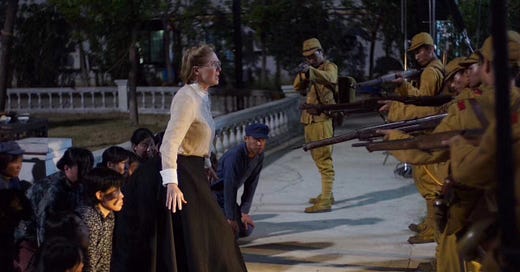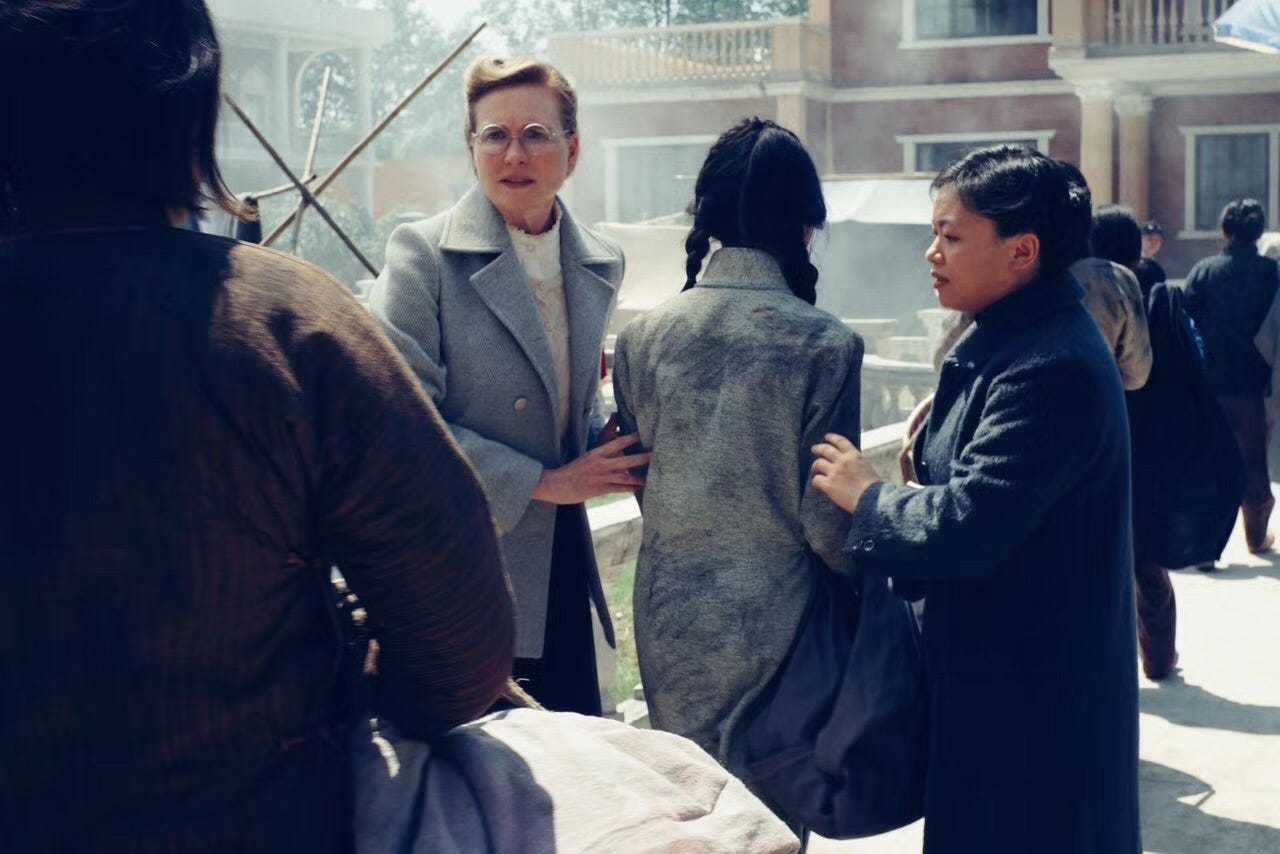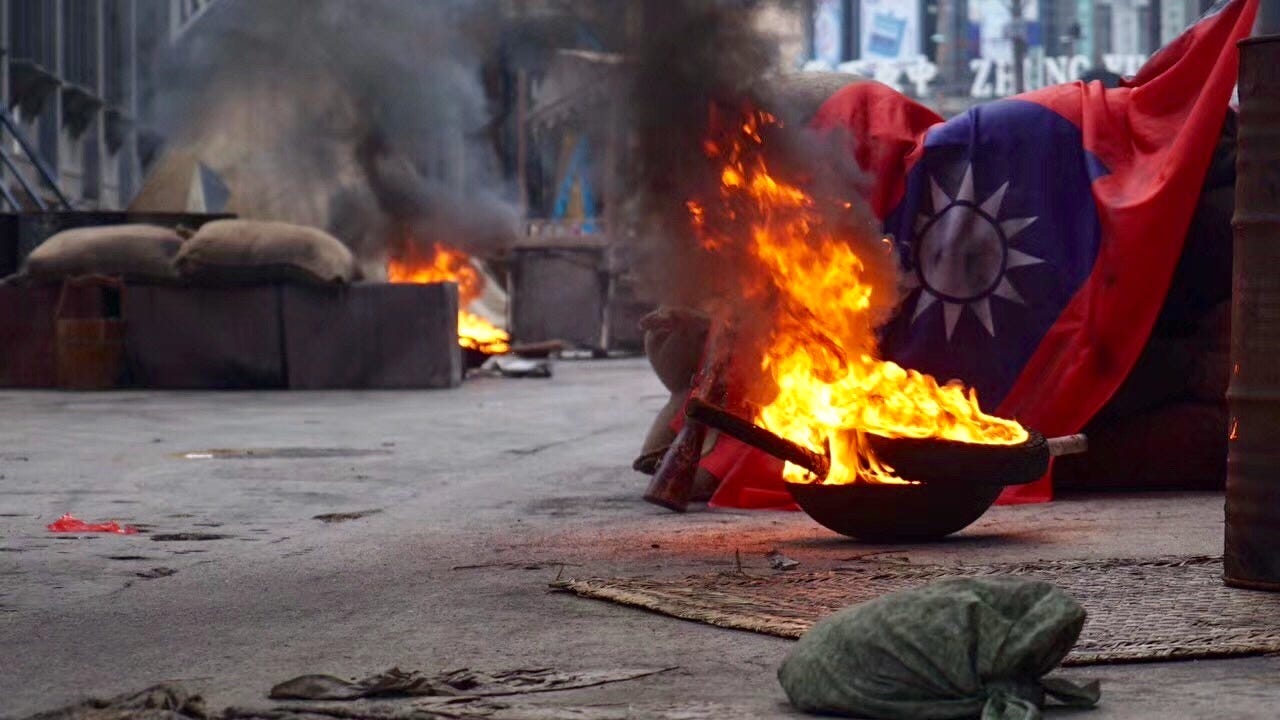Memories of atrocities do not extinguish well.
Sometimes those memories haunt your every dream and leave scars.
Japanese atrocities committed in 1937 in Nanjing are memories that still haunt an entire nation.
In the summer of 2017 I received a Wechat message to see if I was available to film for the role of Minnie Vautrin 米妮·沃特琳 in a joint US-China production.
‘Scars of Nanking’ 南京之殇 aired on both the History Channel in the U.S. and Jiangsu Satellite TV in China to mark the 80th anniversary of the Nanking Massacre, which falls on December 13, 2017.
This broadcast marked the first time that a Nanjing Massacre-themed documentary was broadcast in western mainstream media.
"The fact that 80 years later the Chinese still give thanks and pay respect to those Americans who stayed behind in Nanjing is a testament to how important it is to them," said Chris Humphrey A&E executive producer.
After I received confirmation for the role of Minnie Vautrin 米妮·沃特琳 I started my research immediately.
A week later I took a flight out to Shanghai.
Filming was taking place in Changzhou, so I got on a 1.5 hour high-speed train and arrived to be picked up and taken to set. The Changzhou film set is known for filming period dramas from the 20s-40s with authentic sets accurately built to look like buildings of the era.
I had two books in hand to read for research and became immersed in the role. It is always a great honor to portray a historic character and during these few weeks, I felt deep connection as I stepped in the shoes of a very brave woman.
I was devouring the pages, following history step by step. In 1937, the Japanese Army moved rapidly through China after capturing Shanghai in November. By early December, they were already near Nanjing. On December 10th, Japanese General Matsui Iwane ordered an all-out attack on Nanking, and after less than two days of intense fighting Chiang Kai-shek decided to abandon the city.
Instead of an organized, peaceful occupation, Matsui ordered the city of Nanjing be destroyed. Much of the city was burned, and Japanese troops launched a campaign of atrocities against civilians.
Beheading, bayoneting, burying alive, burning to death, drowning, disemboweling, killing contests and rape.
The Japanese butchered an estimated 150,000 male “war prisoners”, massacred an additional 50,000 male civilians, and raped at least 20,000 women and girls of all ages, many of whom were mutilated or killed in the process.
Recreating these horrors on set was harrowing. The summer heat, the winter woollen costuming, no green room to get relief from the heat, the beating down sun. One hundred extras made to look like suffering Nanjing families, other extras dressed as Japanese soldiers carrying bayonet guns, flags draped everywhere, the distant gunshots and sirens, the constant smoke fires that were being lit all made for a very real feeling of being in midst of a tragedy.
I somehow felt transported in time and my fellow actors who portrayed other Americans who chose to remain in Nanjing felt the same. We experienced something even more profound than collective sadness. It felt more like deep respect for these characters who risked their lives to do good for a people caught in a moment of history. Much of the time all remained silent on set in mutual understanding. These moments are embedded in my memory.
But who was Minnie Vautrin?
Minnie was American missionary who risked her life to save 10,000 Chinese women during the Nanjing Massacre and was an important member of the International Committee of the Red Cross. She is credited with single-handedly preventing hundreds of rapes.
What I didn’t know was that Minnie is regarded a hero in China. She is memorialized in the The Memorial Hall of the Victims in Nanjing with a life size bronze statue and a display of tribute.
The grateful refugees called her "Goddess of Mercy".
Many of the scenes for me were reading her words: "Whoever wants to go through this gate will have to do so over my dead body."
"Never shall I forget the faces of the young girls as they streamed in—most of them parting from their fathers or husbands at the gate. They had disguised themselves in every way possible”
“Had I ten perfect lives, I would give them all to China.”
In the last few days of her life, she told her friends that if she could be born again, she would still serve the Chinese people, and China was her "home".
She committed suicide in 1941 after returning home to Indiana.
For Minnie, the scars were too deep, too unbearable.
More lasting in the sheer enormity of scale, memories of these atrocities will never extinguish for the Chinese families and for the ancestors of those families who were caught in the horror of the Nanjing Massacre.
Those memories remain indelible scars of an entire nation.
For more information, a very good article on the docu-drama by Chen Weihua can be read HERE
Watch the trailer here:
To know more about this horrific time watch the whole docu-drama on Amazon Prime: WATCH HERE








